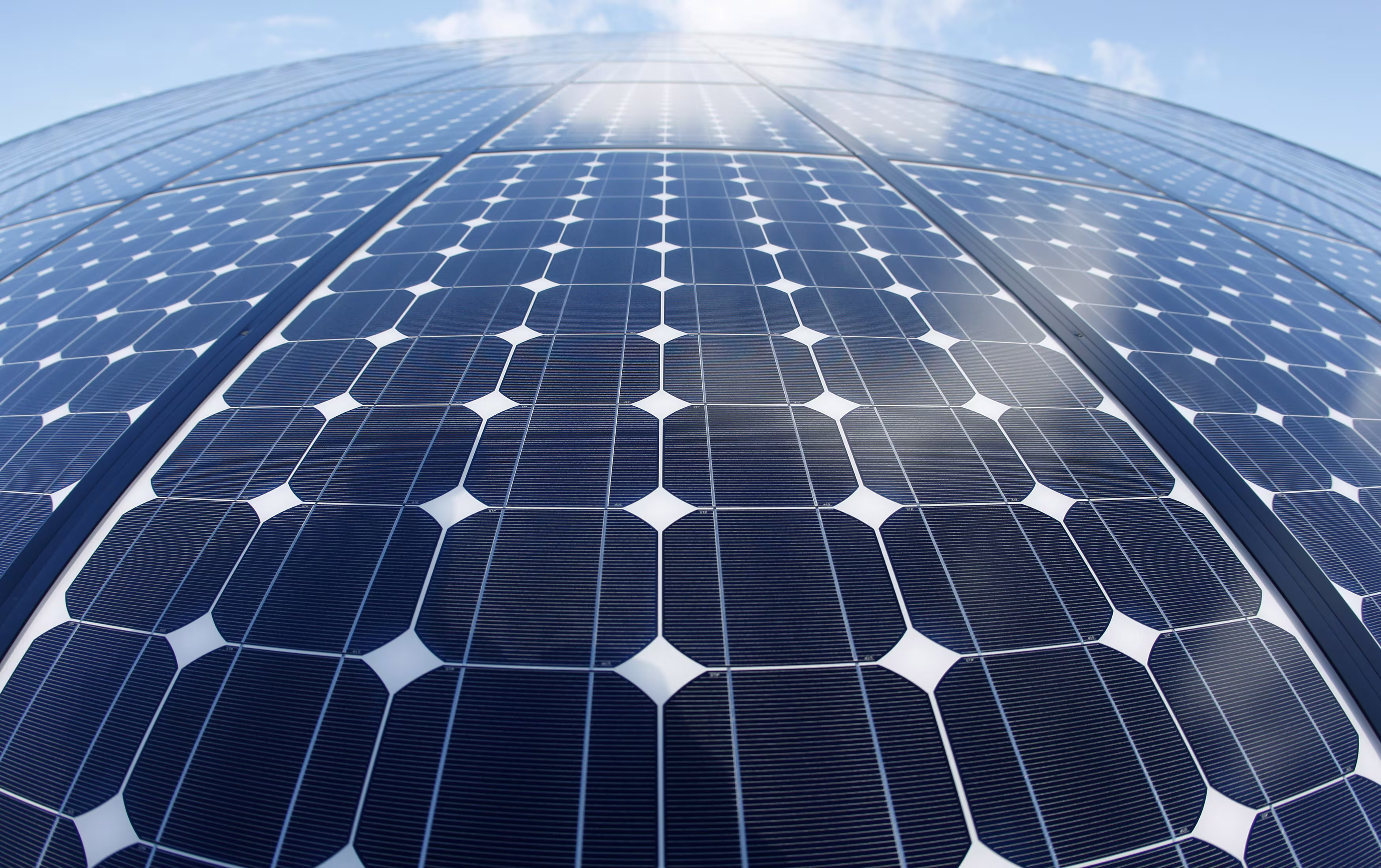This round-up brings you the key stories from the energy sector over recent weeks.
Top energy news: Solar set to exceed nuclear for the first time; LFP batteries fuelling energy storage boom; IEA warning on copper demand.
For more on the World Economic Forum’s work in the energy space, visit the Centre for Energy and Materials.
세계경제포럼, 2025년 5월 23일 게시
Roberto Bocca
Head, Centre for Energy and Materials; Member of the Executive Committee, World Economic Forum

1. Solar generation to exceed nuclear
Global electricity generation from solar farms is set to exceed output from nuclear reactors for the first time this summer, Reuters reports.
On an annual basis, the output from solar energy is behind that of wind, nuclear and hydropower systems because solar farms only generate power during daylight.
During peak production months, however, solar can exceed output from most other clean energy sources. It has already started to surpass global wind output during the northern hemisphere summer from last year, data from energy think tank Ember shows.
Now, if monthly solar generation continues to register around 30% more than the same month in 2024, global solar electricity output is on its way to eclipse nuclear production during June, July and August this year.
Solar generation will likely fall back from September with fewer hours of daylight in the northern hemisphere – highlighting the importance of balancing the intermittency of renewables with other sources of power.

Global solar generation is set to overtake nuclear production for a period this summer.Image: Reuters/Ember
2. LFP batteries fuelling energy storage boom
Falling lithium iron phosphate (LFP) battery costs are driving rapid growth in energy storage technology, which will be vital for stabilizing power systems as more wind and solar are added to grids.
LFP batteries have roughly halved in cost within the past two years while recording notable performance improvements, according to Reuters. This has led to a boom in energy storage projects that is outpacing electric vehicle (EV) sales growth in percentage terms.
EVs still dominate battery demand – but it’s forecast that energy storage will make up about a fifth of the market by 2030.
Because LFPs don’t use cobalt and nickel, the growth of the technology is “sending shockwaves” through the markets for those metals, Reuters says.
3. News in brief: More energy stories from around the world
Demand for copper will fall 30% short of the amount needed by 2035 unless urgent action is taken, according to the International Energy Agency. The metal is a core component of all electrical energy systems.
Turkey may hold over 6 billion barrels of shale oil in its southeastern Diyarbakir Basin, according to estimates cited by the country’s energy minister. If confirmed, the reserves would put Turkey above some OPEC members.
China has issued export permits to at least four rare earth magnet producers – the first that have been granted since the country restricted shipments last month.
India’s Reliance Industries says it will start its solar module factory this year as the country ramps up investment to meet clean energy targets.
The European Union will need to spend at least €10 billion ($11.35 billion) more than it did last year to refill its gas stores ahead of winter, the Financial Times reports. This is necessary to meet the bloc’s mandate of refilling storage to 90% capacity each summer to avoid disruption in colder months.
South Africa has called for a balanced approach to energy transition that sees economic development and environmental protection work in tandem rather than in opposition. The country’s energy minister said there was an “imbalance in global climate responsibilities”, and that Africa contributes the least greenhouse gas emissions globally but faces disproportionate pressure to decarbonize.
Denmark is investigating the potential benefits of new nuclear power technologies, 40 years after it banned nuclear power, writes The Guardian. The country’s energy and climate minister is reported to have said the country wants to see what small modular reactors might mean for Danish society.
Oil companies in Japan are scaling back decarbonization initiatives, including projects in hydrogen and ammonia, Reuters reports.
Colombia’s state-run oil firm Ecopetrol has agreed to buy 10 wind and solar energy project development companies from Norway’s Statkraft.
4. More on energy from Forum Stories
The Iberian Peninsula power outage – Europe’s largest blackout in years – highlighted modern society’s reliance on electricity. What can the incident teach us about building a resilient energy grid?
Critical minerals are fundamental to technologies including EVs, wind turbines and solar panels, making them vital for the shift towards sustainable energy. A white paper from the World Economic Forum and McKinsey outlines the key steps required to manage demand, boost availability and shore up supply chains.
To learn more about the work of the Centre for Energy and Materials, contact Ella Yutong Lin: ellayutong.lin@weforum.org.



